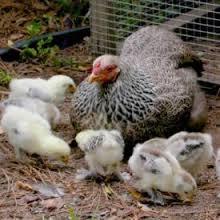Brooding peace
Gerard Manley Hopkins (1844–89). Poems. 1918.
22. Peace
WHEN will you ever, Peace, wild wooddove, shy wings shut,
Your round me roaming end, and under be my boughs?
When, when, Peace, will you, Peace? I’ll not play hypocrite
To own my heart: I yield you do come sometimes; but
That piecemeal peace is poor peace. What pure peace allows
Alarms of wars, the daunting wars, the death of it?
O surely, reaving Peace, my Lord should leave in lieu
Some good! And so he does leave Patience exquisite,
That plumes to Peace thereafter. And when Peace here does house
He comes with work to do, he does not come to coo,
He comes to brood and sit.
* * *
Between the first and the second stanzas, Hopkins’ Lord takes away (reaves) the bird of Peace. The alternative would be to think that the bird itself is reaving something away, which seems implausible. The dove, which sits and coos, is replaced by a different sort of winged creature who broods and sits.
We are familiar with another brooding in a more famous poem of GMH’s, God’s Grandeur, in which the Holy Ghost broods over the world with “warm breast and with ah! bright wings.” One of the fruits of the Holy Ghost, as far as this non-Christian can figure out, is supposed to be peace. The connection I feel is to the Jewish Shechinah.
In any case, the language of “brooding” attached to this presence perhaps is to be traced to a popular 18th-century theological work, John Gill‘s Exposition of the Old Testament, in which it is said that the spirit of God in Genesis “brooded” over the face of the deep.
The work of peace, as frustrating as it is, is part of the labor of creation itself – perhaps the “work” that Peace comes to do.



